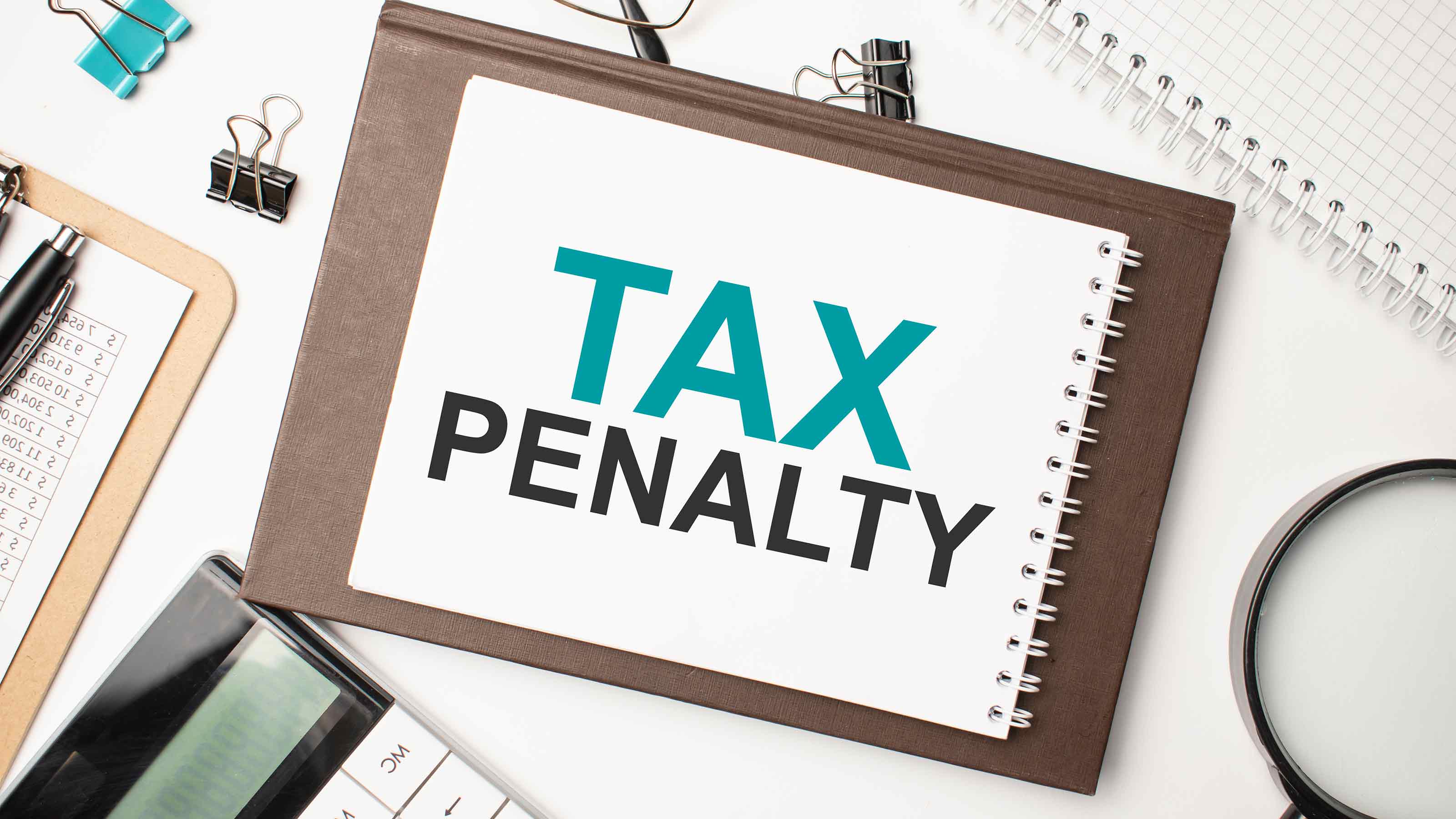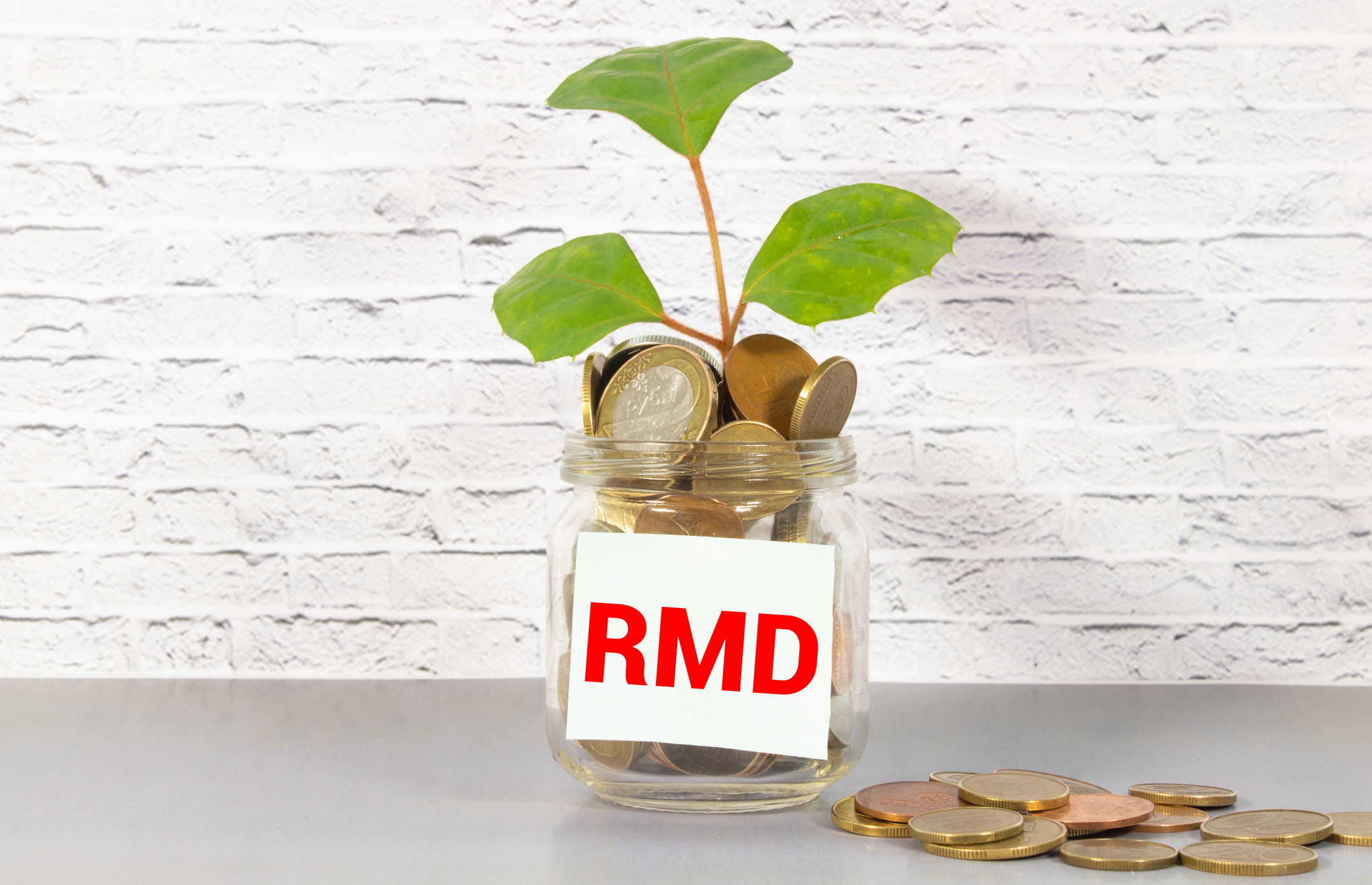New RMD Rules: Starting Age, Penalties, Roth 401(k)s, and More
The SECURE 2.0 Act makes major changes to rules for required minimum distributions (RMDs).

Gabriella Cruz-Martínez

Profit and prosper with the best of Kiplinger's advice on investing, taxes, retirement, personal finance and much more. Delivered daily. Enter your email in the box and click Sign Me Up.
You are now subscribed
Your newsletter sign-up was successful
Want to add more newsletters?
If you’ve retired and reached a certain age, you must withdraw required minimum distributions (RMDs) from your retirement savings plan to meet your tax obligations.
In case you missed it, the SECURE Act 2.0 of 2022 (PDF) changed RMD rules, offering more than a handful of provisions that simplify retirees' taxes — with more benefits to be added through 2033.
It wasn't long ago that the retirement-savings landscape was shaken up. This past decade, the original SECURE Act made waves by extending the age at which you must start taking RMDs from 70½ to 72. However, many lawmakers felt this adjustment didn't go far enough.
Congress began planning additional legislation to help more people save for retirement and hold on to their money longer. Those efforts resulted in the Biden administration’s SECURE 2.0 Act.
For retirees, understanding these new changes is crucial, particularly if you're concerned about RMDs from your traditional IRAs, 401(k)s, and other qualified retirement savings accounts.
The latest changes will reshape how many approach retirement tax planning. Here are six rules you don’t want to miss when planning your RMDs for 2025.

1. RMD age limits change
Before the SECURE 2.0 Act, you had to start taking RMDs from 401(k) accounts, traditional IRAs and similar retirement savings accounts (other than Roth IRAs) in the year you turned 72 (although you had until April 1 of the following year to take your first RMD).
However, the SECURE 2.0 Act will eventually push the age for starting RMDs to 75 after moving it to 73 as of 2023.
There is a two-step process under the SECURE 2.0 Act for increasing the age at which RMDs become necessary.
Step 1: Beginning in 2023, the age to start taking RMDs jumped from 72 to 73.
Step 2: Beginning in 2033, it creeps up again to 75.
Year | RMD Starting Age |
|---|---|
Before 2023 | 72 |
2023-2032 | 73 |
2033 and Beyond | 75 |

2. RMD penalties are lower in 2025
SECURE 2.0 reduces the penalty for failing to take an RMD to 25% in all cases.
In addition, the penalty drops to 10% if you take the necessary RMD by the end of the second year following the year it was due.
For some, the SECURE 2.0 Act will also delay the start of the statute of limitations for assessing the penalty.
For people who aren't required to file an income tax return for the tax year in question, the three-year limitations period starts on the date that an income tax return would have been due (excluding any extensions), instead of the date a tax return for the year is filed, which can be later than the normal due date.
By starting the clock sooner, some people might avoid the penalty if the IRS is slow in assessing it.
Note: Keep in mind that the IRS has waived penalties for failing to take RMDs for certain inherited IRAs. For more information, see IRS Delays IRA RMD Rules.

3. RMDs for Roth 401(k) accounts
There are no RMDs for Roth IRAs. Previously, RMDs were required for Roth 401(k) accounts.
Now, due to SECURE 2.0, as with Roth IRAs, Roth 401(k) accounts won't be subject to the RMD rules before the account holder dies. (Post-death minimum distribution rules, which also apply to Roth IRAs, still apply.)
For most, the change was implemented in 2024. However, an exception applies to RMDs required before 2024 but not required to be paid until January 1, 2024, or later.

4. Annuities and RMD changes
SECURE 2.0 also addresses a few issues related to annuities with retirement savings accounts.
For instance, if a retirement account includes an annuity, the account was split under prior law between the part holding the annuity and the part that doesn't for purposes of applying the RMD rules. This could result in higher RMDs.
SECURE 2.0 allows you to combine distributions from both parts when calculating your annual RMD amount.
In addition, to help make annuities a more attractive component of retirement plans, SECURE 2.0 allows the following payments if certain requirements are satisfied:
- Annuity payments that increase at least annually up to 5% per year
- Lump sum payments that result in a shortening of the payment period with respect to an annuity or a full or partial commutation of the future annuity payments
- Lump sum payments that accelerate the receipt of annuity payments that are scheduled to be received within the next 12 months
- Payments "in the nature of a dividend" or similar distribution
- Final payments upon death that don't exceed the total amount of consideration paid for the annuity payments, minus the aggregate amount of prior distributions or payments from or under the contract
Finally, SECURE 2.0 boosts the use of qualifying longevity annuity contracts (QLACs). Generally, with a QLAC, you can invest up to $210,000 or 25% of a retirement account, whichever is less, and shield those funds from RMDs.
SECURE 2.0 repeals the 25% limit and bumps the dollar amount up to $200,000 (adjusted for inflation each year). It also clarifies that: Survivor benefits can be paid following a divorce, and an employee has 90 days from the purchase date to rescind a QLAC.

5. New RMD rules for surviving spouses
Special rules exist for determining when a surviving spouse must start taking RMDs from an inherited retirement account.
One of those rules states that if an account holder dies before RMDs are required and their surviving spouse is the beneficiary (and doesn't change that status), RMDs from the inherited account aren't required until the year in which the deceased account holder would have reached age 72.
SECURE 2.0 tweaks that rule by also allowing the surviving spouse to be treated as the deceased account owner for RMD purposes starting in 2024.
In some cases, this will allow the surviving spouse to delay taking RMDs from the inherited account, e.g., if the surviving spouse is younger than the deceased spouse.
The surviving spouse must elect this treatment according to procedures the IRS will have to establish, and the election will be irrevocable. The surviving spouse will also have to notify the account administrator.

6. QCDs used to lower RMDs
Money donated to charity through a qualified charitable distribution (QCD) counts towards your RMD. For charitable-minded older adults, QCDs are a great way to reduce the amount of money you otherwise must withdraw from an IRA.
However, QCDs were previously capped at $100,000 per year.
SECURE 2.0 allows the QCD limit to be adjusted annually for inflation (rounded to the nearest $1,000). The adjustments began in 2024. The limit for 2025 is $108,000 and $111,000 for 2026.
In addition, as of 2023, a one-time QCD of up to $50,000 (indexed to inflation) to charities is allowed through certain charitable remainder annuity trusts, charitable remainder unitrusts, or charitable gift annuities. The amount is capped at $54,000 for 2025 and at $55,000 for 2026.
Profit and prosper with the best of Kiplinger's advice on investing, taxes, retirement, personal finance and much more. Delivered daily. Enter your email in the box and click Sign Me Up.
Rocky Mengle was a Senior Tax Editor for Kiplinger from October 2018 to January 2023 with more than 20 years of experience covering federal and state tax developments. Before coming to Kiplinger, Rocky worked for Wolters Kluwer Tax & Accounting, and Kleinrock Publishing, where he provided breaking news and guidance for CPAs, tax attorneys, and other tax professionals. He has also been quoted as an expert by USA Today, Forbes, U.S. News & World Report, Reuters, Accounting Today, and other media outlets. Rocky holds a law degree from the University of Connecticut and a B.A. in History from Salisbury University.
- Gabriella Cruz-MartínezTax Writer
-
 How Medicare Advantage Costs Taxpayers — and Retirees
How Medicare Advantage Costs Taxpayers — and RetireesWith private insurers set to receive $1.2 trillion in excess payments by 2036, retirees may soon face a reckoning over costs and coverage.
-
 3 Smart Ways to Spend Your Retirement Tax Refund
3 Smart Ways to Spend Your Retirement Tax RefundRetirement Taxes With the new "senior bonus" hitting bank accounts this tax season, your retirement refund may be higher than usual. Here's how to reinvest those funds for a financially efficient 2026.
-
 5 Retirement Tax Traps to Watch in 2026
5 Retirement Tax Traps to Watch in 2026Retirement Even in retirement, some income sources can unexpectedly raise your federal and state tax bills. Here's how to avoid costly surprises.
-
 3 Smart Ways to Spend Your Retirement Tax Refund
3 Smart Ways to Spend Your Retirement Tax RefundRetirement Taxes With the new "senior bonus" hitting bank accounts this tax season, your retirement refund may be higher than usual. Here's how to reinvest those funds for a financially efficient 2026.
-
 5 Retirement Tax Traps to Watch in 2026
5 Retirement Tax Traps to Watch in 2026Retirement Even in retirement, some income sources can unexpectedly raise your federal and state tax bills. Here's how to avoid costly surprises.
-
 Your Legacy Is More Than Your Money: How to Plan for Values, Not Just Valuables
Your Legacy Is More Than Your Money: How to Plan for Values, Not Just ValuablesLegacy planning integrates your values and stories with legal and tax strategies to ensure your influence benefits loved ones and good causes after you're gone.
-
 4 High-End Experiences Worth the Splurge After 50
4 High-End Experiences Worth the Splurge After 50These curated date ideas provide the perfect backdrop for couples ready to enjoy the very best that the world has to offer.
-
 My Grandkids Want Me to Donate to Their Teams and School Fundraisers. I Adore Them, but I'm on a Budget.
My Grandkids Want Me to Donate to Their Teams and School Fundraisers. I Adore Them, but I'm on a Budget.When your heart says "yes" but your wallet says "no," there is still a way forward. Here's what financial pros say.
-
 Quiz: Do You Know How to Maximize Your Social Security Check?
Quiz: Do You Know How to Maximize Your Social Security Check?Quiz Test your knowledge of Social Security delayed retirement credits with our quick quiz.
-
 2026 Tax Refund Delays: 5 States Where Your Money Is Stuck
2026 Tax Refund Delays: 5 States Where Your Money Is StuckState Tax From New York to Oregon, your state income tax refund could be delayed for weeks. Here's what to know.
-
 It's Time to Bust These 3 Long-Term Care Myths (and Face Some Uncomfortable Truths)
It's Time to Bust These 3 Long-Term Care Myths (and Face Some Uncomfortable Truths)None of us wants to think we'll need long-term care when we get older, but the odds are roughly even that we will. Which is all the more reason to understand the realities of LTC and how to pay for it.

